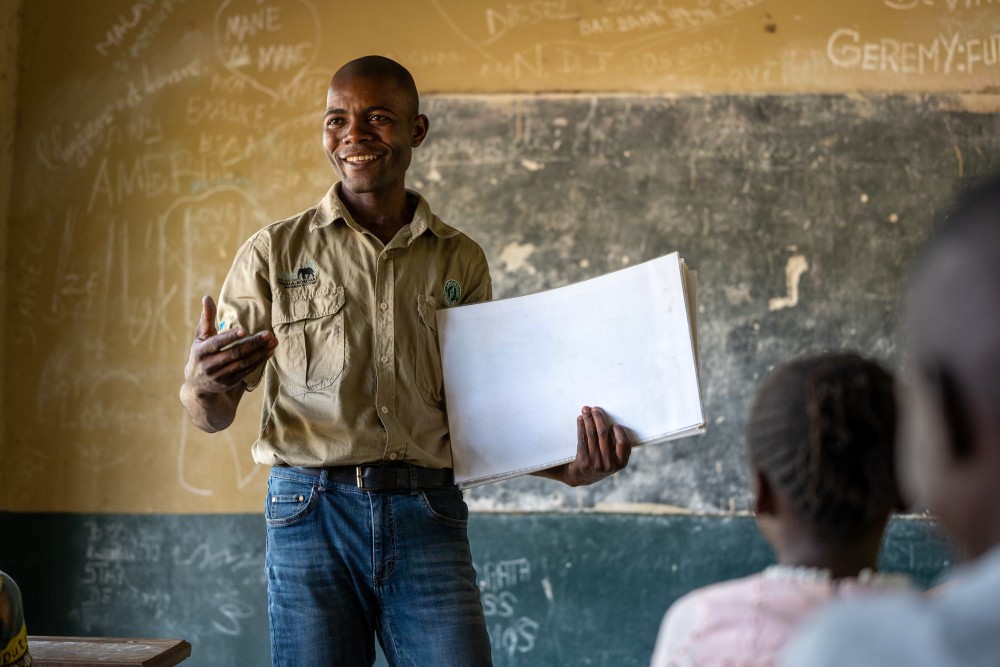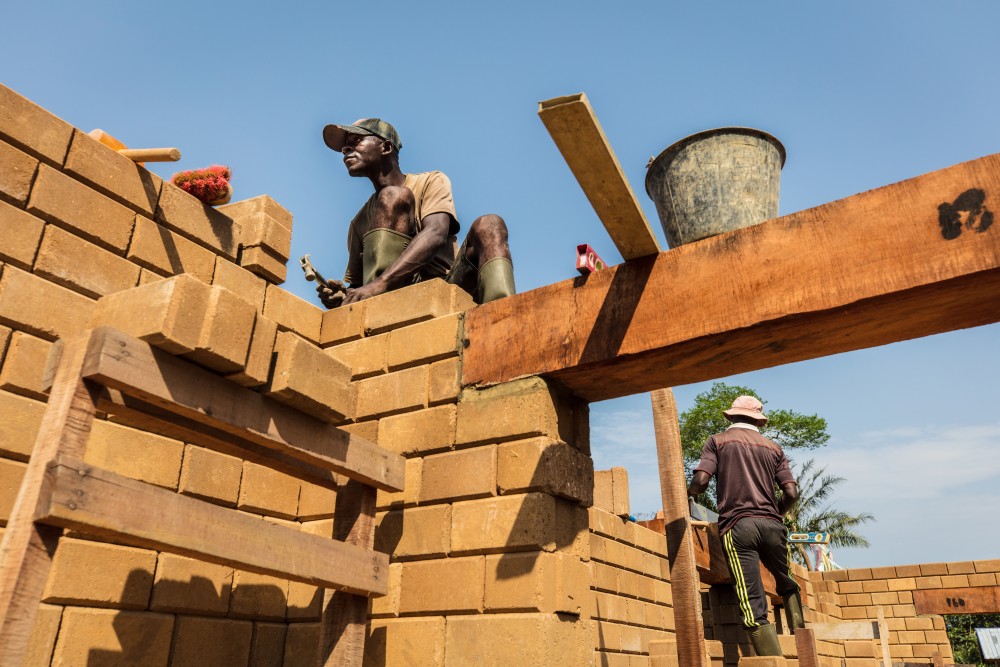Over 12,000 people live on the periphery of Odzala-Kokoua. Within these communities, there are nine major ethnic groups and a broad range of cultures including the Bakouélé in the north, the Mboko in the south and the Bangombé, Banguili and Bokiba to the east of the park.
As part of Odzala’s community development support, local communities are represented in governance structures as well as managing community projects and access to sustainable natural resource harvesting. This is further enhanced through a range of projects that target health, education and alternative livelihoods.
Access to natural resources:
National legislation is upheld in Odzala, ensuring that communities retain access to natural resources and cultural sites. The Land Use Plan process and social mapping initiatives being carried out by the park aim to identify all sites of cultural relevance to local communities, such as ancient villages and sites where traditional ceremonies are celebrated, to ensure access to these are maintained.
Community Engagement
Communication between the park and surrounding communities is facilitated through Sustainable Development and Community Governance Associations. Each village has its own association, consisting of women, the elderly, youths and indigenous groups. These allow meaningful, targeted and collaborative community project developments as well as park governance, with two members sitting on the Odzala-Kokoua-Lossi Foundation Board.
In 2022, 398 community meetings took place, nearly 2,000 community members visited the park, and over 1,000 people attended celebrations such as Pangolin Day, International Women’s Day and National Tree Day.
Channels are in place allowing community members to share any grievances or suggestions. These include a hotline and CDHD, Congolese human rights NGO.
Eco-Teams
Launched in 2022, the Eco-team project currently has over 20 young people, known as eco-ambassadors, from five villages around the park. With their main role being the collection of data for biodiversity conservation management, these previously unemployed community members have also become a crucial connection between the park and the villages.
In the south of the park, the Eco-team near Ebana village monitors a previously habituated gorilla group, while the team in Bossouaka collects human wildlife conflict data in the area. In 2023, more Eco-teams were launched in the east and north of the park, collecting data to better understand resource harvesting, bushmeat trading and human wildlife conflict around local villages.
 © Irene Galera
© Irene GaleraEducation and Environmental Awareness
More than 2,000 students engage in environmental education programmes every year. During school holidays, children have the opportunity to visit the park and learn about biodiversity conservation through games and practical activities.
Sustainable Enterprise Development
Income-generating activities focus on sustainable agriculture, artisanal crafts and sustainable use of natural resources. Youth education as well as skills trades, apprenticeships and ecotourism help to address unemployment.
Enterprise projects, including producing cacao, black pepper and wild mango, as well as beekeeping and vegetable gardening.
 © Marcus Westberg
© Marcus WestbergCommunity Infrastructure Development
Infrastructural developments across the park’s communities are managed through the Local Development Fund and Village Development Plans. Village Development Plans involve community votes on infrastructure needs, while the Local Development Fund supports these visions through tourism revenue which supported 5 community projects in 2022.
To mitigate human-elephant conflict, chilli fences, which repel elephants, are being used effectively, as well as two new projects using trenches and electric fences to protect community agricultural fields.
To mitigate human-elephant conflict, chilli fences, which repel elephants, are being used effectively, and an experimental project using electric fences to protect community agricultural fields is being developed.
